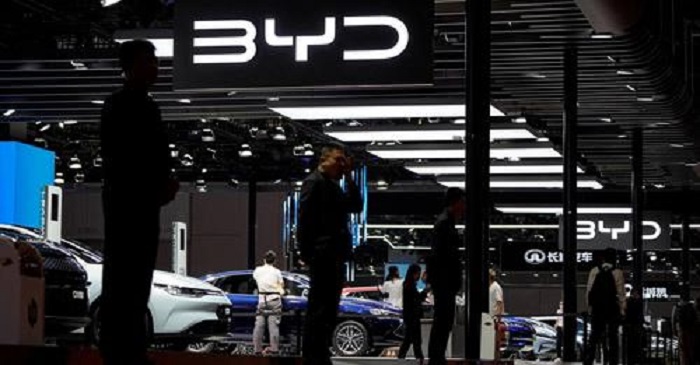
China key player in Mexico’s growing Electric Vehicle market.
Mexico Business News reports that Chinese automakers such as BYD, Geely, GAC, JAC, MG, and Chery are taking center stage in Mexico’s automotive industry, becoming instrumental in propelling the development of electric and hybrid vehicles. These companies are poised to dominate the market for battery-powered and hybrid vehicles in the country, according to the Mexican Association of Automotive Distributors (AMDA).
China, the world’s leading car producer with an annual output of around 27 million units, stands out for its substantial contribution to the electric vehicle (EV) market. The Asian giant has exported over 7.7 million electrified cars, and projections suggest an annual production of 13 million units by the end of the year, outpacing the United States and Japan.
Chinese automakers are increasing their influence in Mexico’s automotive sector, intensifying competition and catalyzing incentives for EVs. In an interview with El Financiero, Armando Cortés, General Director, National Auto Parts Industry (INA), said that by establishing production or assembly plants in Mexico, Chinese companies “will undoubtedly stimulate the development of a supply chain.”
While Chinese brands held a 20% market share in Mexican car sales for the first half of 2023, AMDA predicts a continuous increase in their penetration as their presence in the country expands. Automakers such as BYD, Geely, Jetour, and Chirey have expressed intentions to relocate production to Mexico, eyeing export opportunities not only in the region but also toward the United States.
Global Times notes that Mexico enjoys favorable tariff conditions under the United States-Mexico-Canada Agreement trade pact (USMCA), which specifies that automakers can import cars tax-free as long as 75 percent of the parts were built in North America. Also, the US Inflation Reduction Act of 2022 allows certain EVs made in North America to qualify for the full $7,500 federal tax credit.
The trend of Chinese automakers seeing Mexico as a way to enter the American electric vehicle (EV) market is drawing attention and concern among some US media outlets, but this flexibility actually underscores the resilience of the Chinese vehicle industry, despite US protectionism.
For instance, Chinese EV makers have targeted the US market through heavy investments in Mexico, which, with its proximity to the US market and tariff advantages under the new United States-Mexico-Canada Agreement (USMCA), has become a new hub attracting capital for auto manufacturing.
US automakers such as Ford and General Motors have reportedly hit a speed bump in their EV push, causing them to reevaluate their plans amid a price war and supply chain challenges, according to media reports. In this sense, more affordable EVs from Mexico are bound to bring more shocks and competition to the American industry.
The US itself has faced too many challenges and problems in large-scale manufacturing, such as high costs, large-scale strikes and supply chain disruptions, among others. Even if Mexico has become a key link in Washington’s reconstruction of the so-called nearshoring industry chain, during that process, China’s presence is inevitable.
It is no secret that the US has been taking measures to promote the nearshoring of supply chains in an effort to “decouple” from China’s industry chains. The US crackdown on Chinese manufacturing, says Global Times, cannot hold back Chinese companies’ expansion.
Sources/Read more: